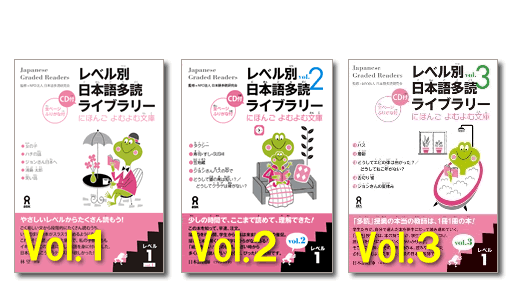
We don’t stream our classes so teachers can focus, and in-person students can relax and participate more actively. 😊
Updated on: 27 February 2026
Reference books for Vocabulary, Reading & Writing
Have you had an experience where though you could understand what a Japanese was talking to you in Japanese language, you could not answer back in Japanese? I can say that speaking and writing is not focused in most language classes, as there are no speaking section in JLPT... but you may want to learn Japanese not just for JLPT. Hence, I hope you can improve every skills of the language including speaking. It's really good practice for speaking by writing something in Japanese. We can speak what we can write. When you can write well, you will be able to speak well, too. And to understand grammar clearly by your own language, it's also effective to practise writing. You might understand the difference of expressions between the two languages.
So how do you practice?
I recommend writing emails and keeping a diary. It might be a bit difficult for new learners to have a chance to send emails to Japanese, but you don't need anyone else when you keep a diary.
To do this, you may want to consider using にほんご日記. At first, part of each section in this book introduces some sentence patterns and vocabularies, and after that you practice to keep a diary by those expressions. Though the grammar might seem easy, I think to write something by the grammar is challenging at first.
The level of the grammar in this book is around JLPT N3.
My student in basic class asked me whether there are any Japanese books that she can read by herself. She wants to try to read Japanese books, but normal Japanese books are too difficult, and textbook is not enough interesting for her (I totally agree!)
I recommended 'Japanese graded reader ' for her. They are written in easy and controlled language for foreign or second language learners of Japanese. They are graded according to the size of vocabulary, complexity of grammar structures and the total number of words used in each book. They are designed to cater to all levels from beginners to advanced students.
For most language learners, reading Japanese books has been a daunting task. There are many unknown words, kanji and expressions beyond their level or understanding. Japanese graded reader have changed all that so now students can enjoy reading without having to constantly stop and look up unknown kanji, words or phrases in the dictionary. Research has also shown that students who read in Japanese improve their Japanese in other area of the language at a faster rate than students who don't read.
And I encourage you not to reach for a dictionary while reading Japanese Graded Readers. Try to skip words and phrases that you don't understand and simply keep on reading. Their meanings will become apparent eventually from the context and illustrations. Finally, if the going gets tough, simply stop reading and try a different one. Don't try too hard to finish! If you do, you might begin to hate reading in Japanese.
It might not be so challenging for Chinese speakers to learn kanji, but it's not easy for non-Chinese speakers. To pass JLPT N5, you need to remember about 100 kanji characters, and 300 for JLPT N4.
It may be difficult but please don't give up. There is a special kanji reference book for non-Chinese speakers .
'Learning 300 Kanjis Through Stories' is a very interesting book as you might expect from the title. And all the explanation is well translated in
1) English, Bahasa Indonesia, Thai, Vietnam and
2) English, Korean, Portuguese, Spanish
To pass JLPT N4 and N5, please study kanji by this book. And to pass JLPT 3, you can use Learn Kanji through Stories Ⅱ 301-500~.
http://nihongo.9640.jp/english/books/books-story.html
This dictionary is for people who really want to master the Japanese language as well as native speakers.
If you are looking for a good mono lingual dictionary, I would like to recommend 「新明解国語辞典」。「広辞苑」might be more famous and standard dictionary for Japanese, but I don't think their definition of words are so clear . Besides, you won't find any joy of studying Japanese by the dictionary.
But 「新明解国語辞典」is different. The definitions are simple and sometimes funny. For instance, you can check meaning of 「恋愛(れんあい)」 by the dictionary. If you can read the definition, you might find it interesting and feel intellectual satisfaction .
恋愛 れんあい
特定の異性に対して他の全てを犠牲にしても悔いないと思い込むような愛情をいだき、常に相手のことを思っては、二人だけでいたい、二人だけの世界を分かち合いたいと願い、それがかなえられたと言っては喜び、ちょっとでも疑念が生じれば不安になるといった状態に身をおくこと。








